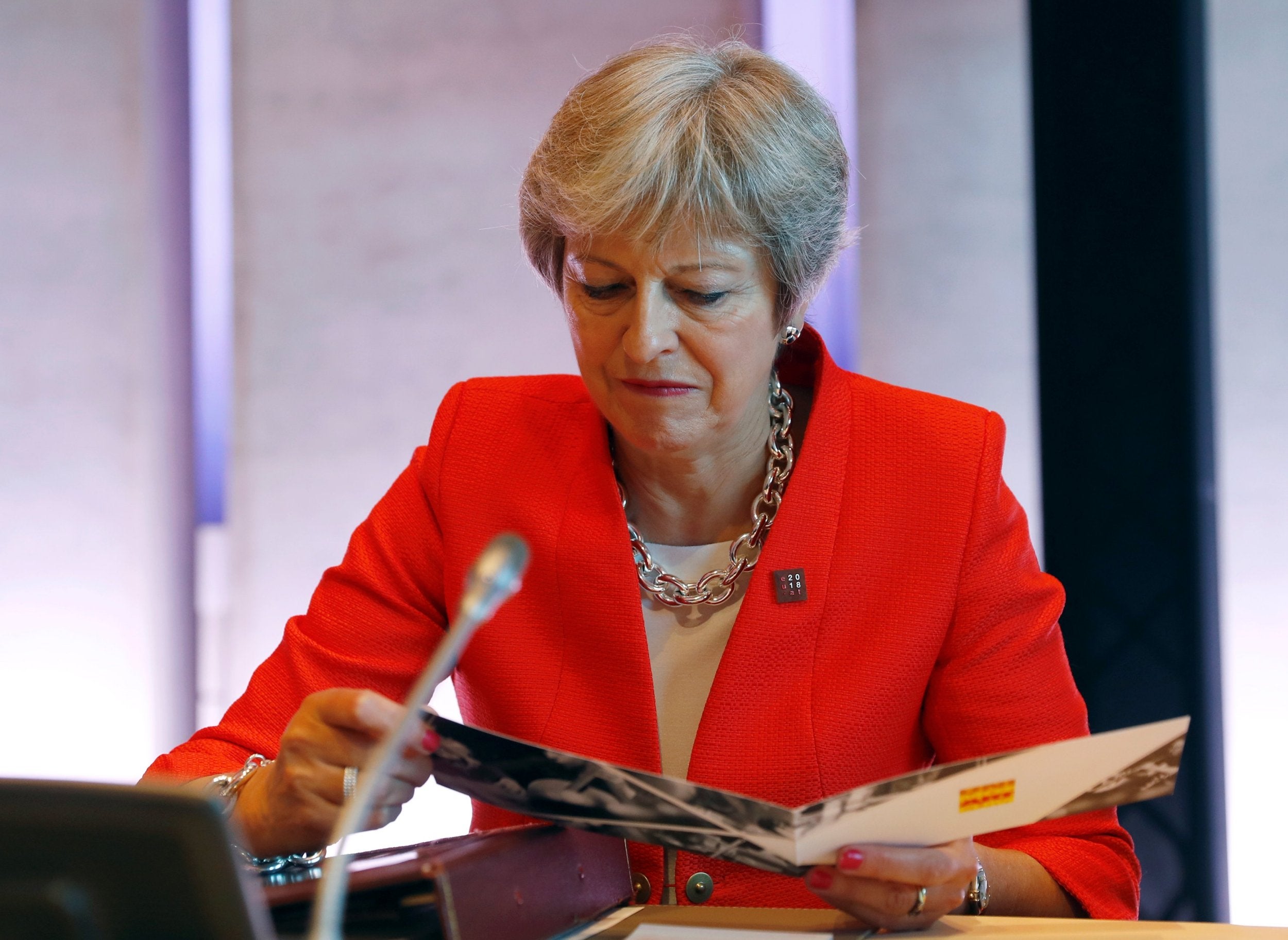Theresa May need not fear Boris Johnson – it’s the Remainers she should worry about
All eyes will be on the former foreign secretary as the Conservatives gather in Birmingham, but they may be looking the wrong way


The prime minister is under threat at this year’s Conservative Party conference, but it is not Boris Johnson she should fear. Her real problem is the Remainers on the other wing of her party.
Johnson will be the biggest draw in Birmingham. At previous conferences you could hear him approaching before you could see the distinctive hair, because he would be surrounded by a cloud of camera operators, journalists and admirers. He will pack them in to his rally on Tuesday, and they will cheer his speech, defiantly demanding a clean break from the EU.
But the next day they will listen to Theresa May’s speech outlining a closer relationship with the EU and then they will go home and nothing will have changed.
If there were a leadership contest now, Johnson would be the front-runner, but there isn’t going to be. Even Conservative MPs now understand their own rules well enough to know that, while there may be enough of them (48) to trigger a vote of no confidence in their leader, there aren’t enough to win it (158).

And even if there were, it is not guaranteed that Conservative MPs would vote to make Johnson’s one of the two names on the ballot paper that would go to party members.
Andrew Gimson, his biographer, writes in The Independent today that Johnson, with his journalist’s eye for “the story”, has identified the rejection of May’s Chequers plan by the EU as his opportunity – “Opportunity” being the conference slogan. Hence Johnson’s setting out of a 4,500-word alternative plan in The Daily Telegraph this week, complete with bullet points and a snappy brand name: “Super-Canada”.
But this is all based on a Johnsonian sleight of hand. He has seized on the words of Michel Barnier, the EU negotiator, some time ago, that a Canada-style trade deal was one of the options the EU was prepared to accept.
That remains the case, but it is subject to the agreement on the Irish border that was reached in December. The UK can have a Canada-style trade deal provided it agrees to Northern Ireland being carved out of the UK and kept in the EU single market.
Johnson deals with this problem in his long article by saying it isn’t one, and that border checks in Ireland can be done away from the border. That means going back on the December agreement, to which he assented as a member of the government.
If Chequers is not yet a success, it is at least a plan that could be the basis for negotiation, whereas Johnson’s alternative has no prospect of being agreed by the EU. He is in effect arguing that the UK should leave without a deal. They might applaud that at his rally on Tuesday, but it is not a position that could command much support in the House of Commons.
Which is why Theresa May will carry on negotiating. She is not exactly popular, but she has a light breeze of public opinion behind her. A ComRes poll this week found 58 per cent agreed the Conservative Party needs to rally round her “to strengthen the UK’s negotiating position with EU”. YouGov reported 46 per cent think no one else could get a better deal, while 26 per cent disagreed.
She may not get a deal, but she has a better chance than Johnson would. He rather astutely said in his BBC interview yesterday that he thought the EU would accept a deal based on Chequers because it is such a “humiliation” for the UK. This is rather different from the hard Brexiteer line that “Chequers is dead”, and fits with what some of my sources are saying, which is that a deal based on a common rule book for goods, and something close to a customs union, is possible precisely because it is “proper vassal-state stuff”.
The threat to May comes not from Johnson but from the EU negotiations. If she cannot reach agreement then she really will have failed. And that outcome is made more likely by her own supporters, such as former home secretary Amber Rudd, this week calling for a second referendum in the event of no deal.
The problem is that the EU negotiators can count. They can see that, if there is likely to be a majority in the House of Commons for postponing Brexit and holding a referendum if there is no deal, it might make sense for them to refuse to make a deal.
Johnson has at most 80 MPs behind him: not enough to bring down May or to influence Brexit. But if Rudd and 30 or 40 Remainer Tories voted with Labour to delay Brexit for a referendum, they could tip the balance. That is a more serious danger for May than any amount of whiff-whaff from Johnson.
Join our commenting forum
Join thought-provoking conversations, follow other Independent readers and see their replies
Comments
Bookmark popover
Removed from bookmarks